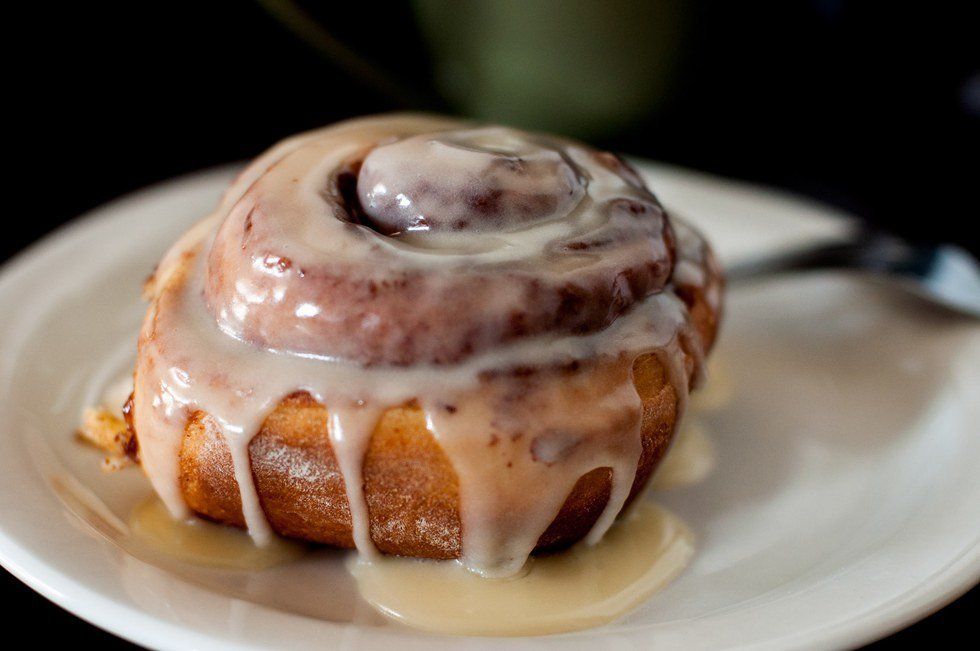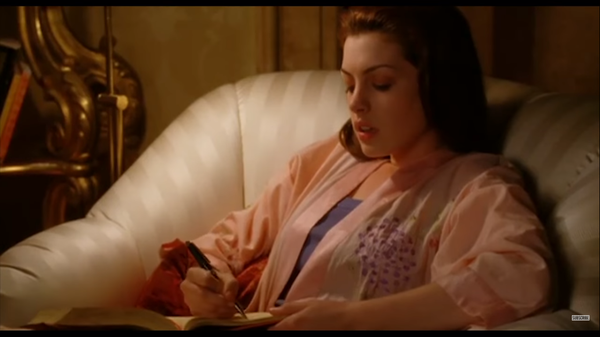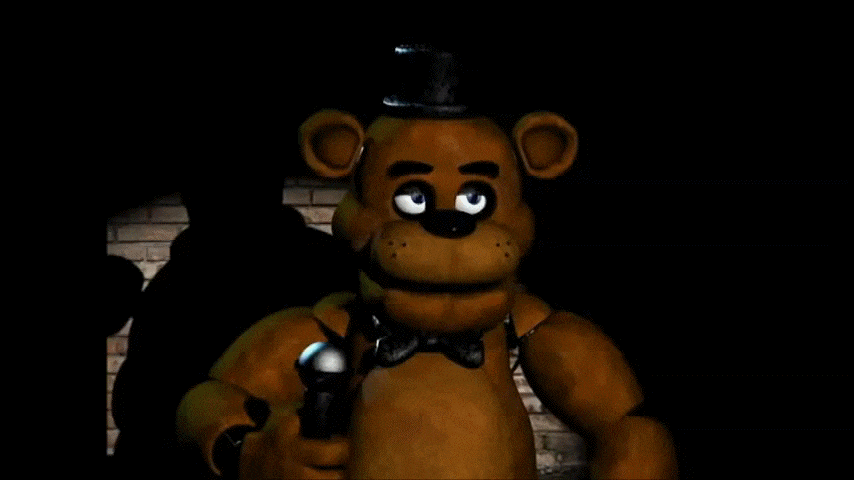Full disclosure: I am deeply fascinated by fandom culture. I’m amazed by how fan fiction writers invent their own unusual phrases that get passed from story to story and fandom to fandom. The friendships that fandom can create are astounding. In recent years, fandom culture has also become especially academic. “Shipping” two characters together is no longer about some sort of chemistry or aesthetic appeal. Now, fans take a look at the scripts, wardrobe motifs, and even musical themes associated with certain pairs. Fandom is probably the least passive subsection of the Internet.
Personally, I’ve always lived on fandom’s fringes. I don’t create fan art, I’ve never written fan fiction apart from imagining myself married to Ron Weasley in first grade, and my Photoshop skills are limited to the image-size changes I have to make in the university’s literary journal. But I’ve always been an avid fan of things, and I like to study the intensity of any given fandom. In the past three years, I have seen a distinct change in the way our fans “do fandom.” They look at visual media (especially television) like classic literature and apply critical reading skills to it. They also bring in their knowledge of the social sciences and critique the existing texts through that lens. Fandom isn’t just for fun anymore. It’s critical, and I think that’s worth taking a look at.
Initially, I was proud of fandoms for taking this sociopolitical, academic stance on media that they claim to love. I’ve always been a critical reader of literature and film, and to observe more fans taking that angle was quite comforting. I felt like less of a nerd. But as I age into my twenties and study especially Victorian literature, I realize that critical fandom might be overcorrecting some social issues they find in their most beloved texts.
By now, you might have seen the cinnamon roll meme. Somehow, this jokey article by The Onion became fandom slang for innocent and adorable characters. Examples of “cinnamon rolls” might include Tara Maclay from Buffy the Vampire Slayer, Iris West from The Flash, and Blake Moran from Madam Secretary.
Cinnamon rolls are characters who don’t “make mistakes” according to their respective fandoms. They’re sweet characters who are often victimized. These are the characters who spark text posts about “deserving better.” They’ve never done anything wrong, and yet, these fictional worlds in which they exist can’t seem to stop hurting them. But I’m here to argue that the cinnamon roll meme is not only damaging to certain characters and the real-life individuals who are similar to them, but it is also an updated repetition of nineteenth-century characterization tropes.
Look at the three characters I mentioned earlier. You might be able to assume that both Tara and Iris are women, and on that account, you would be correct. But what you might not know is that two of the aforementioned characters (Tara and Blake) are not heterosexual. You say these characters don’t make mistakes, and that’s why they’re cinnamon rolls? You’re actually doing them a great disservice, and you’re encouraging female and other marginalized characters to be angels in the house.
Let me explain: “The Angel in the House” is a nineteenth-century poem by Coventry Patmore. Speculation has it Patmore wrote this poem about his wife, Emily, and he believed she was the perfect model of a Victorian wife. She wasn’t some unruly woman. No, no! She was an angel.
Doesn’t that just terrify you? To think that you can’t be a woman because some guy wants you to be an angel? In the 1920s, it certainly terrified Virginia Woolf. In her book, A Room of One’s Own, Woolf asks her readers to kill Patmore’s angel in the house. She argues that women can’t even take themselves seriously as authors until the angel in the house is dead at their hands.
I know what you’re thinking. That sounds awesome. Woolf is completely right, and the angel in the house is a horrible thing. But there’s another female character trope that almost always accompanies the angel in the house. That’s the madwoman in the attic. Very basically, the madwoman in the attic is the perfect foil to the angel in the house. She constantly “makes mistakes,” and for this, she is vilified, marginalized, and never has a real voice in the story she’s in. When I put it this way, you probably realize that using this trope is just as damaging to female (or, more broadly, non-heterosexual-male) characterization. Admittedly, there is something compelling about the madwoman in the attic that does not exist for the angel in the house. At least the madwoman in the attic is allowed to “make mistakes,” even if it is all she is expected to do.
By now, you might have realized that my use of the word “mistake” in this article is terribly sarcastic. That’s because I believe mistake is too harsh and condemning a word to assign to any female or non-heterosexual-male character. These characters might not be making mistakes at all. Rather, they might be challenging the expectations of gender and sexuality with which they are generally associated. But fandom culture does not see this as liberating. They are quick to assume that these challenges are merely examples of writers and their hatred for certain marginalized groups.
What if that isn’t the case? It is possible that the fans are the ones doing the disservice to marginalized characters instead of the writers. The cinnamon roll meme, I maintain, is an updated version of the angel in the house. The angel in the house does not challenge social and sexual expectations, and neither does the cinnamon roll.
I do not aim to argue that all writers are perfect. Joss Whedon consistently regresses to Victorian tropes on series like Buffy the Vampire Slayer and its spinoff, Angel. It’s unsavory when his only arguably non-binary characters are female vampires and enemies to Buffy Summers. Non-normative sexuality, in the Buffyverse, is implicitly associated with evil, and that’s not fair.
In fact, let’s continue to look at Buffy the Vampire Slayer and its relationship to the cinnamon roll meme. Fans like to say that Willow Rosenberg (Alyson Hannigan) is a type of cinnamon roll. Willow is female, identifies as a lesbian, and is typically meekly sweet. More often than not, Willow conforms to female-gender expectations. Except, of course, after she nearly destroys the world in the wake of her lover’s murder. Then the audience and the characters panic and try to pawn her construct-challenging behavior on an imaginary entity called Dark Willow.
Newsflash: Dark Willow doesn’t exist. There’s only one Willow, and she’s just as capable of fixing computers as she is of flaying misogynists alive. Still, the audience doesn’t grant Willow this kind of moral complexity. They want her to be a cinnamon roll, but because she has killed someone and threatened to end the world, she can’t be.
Here, I’d like to contrast Willow with the male vampire, Angel (David Boreanaz). Much of the time, Angel is a heroic character. But when Angel loses the soul that encourages him to be a hero, he is a savage murderer who destroys because it is fun for him. Buffy and her friends hate this version of Angel, but as soon as his soul is returned to him, they are quick to forgive him. To put it simply, Angel is allowed to be a nobleman and a killer—a sinnamon roll, if you will. Willow isn’t granted the same liberties by her fans especially, and this is likely due to her gender and sexuality.
But Tara Maclay (Willow’s aforementioned lover) is a cinnamon roll because she doesn’t challenge those female expectations. She looks after Buffy’s little sister, Dawn (Michelle Trachtenberg) as a mother would. She doesn’t put up much of a fight when she learns that Willow betrays her trust. She is quiet and perhaps even docile. Tara is a static character, a cinnamon roll, and an angel in the house. And this isn’t fair representation.
The cinnamon roll meme is really no different than the angel in the house. It takes female and other marginalized characters and praises them for being flawless—for not challenging sex-and-gender expectations. But this does a terrible disservice to these characters. If up-and-coming creators write their characters based on the cinnamon roll meme, the characters who should be overwhelmingly and realistically represented will suffer greatly. If we write based on the cinnamon roll meme, based on the thought that our faves must be unproblematic, we subliminally suggest that the only characters allowed for complexity are the overrepresented white and heterosexual males.





















